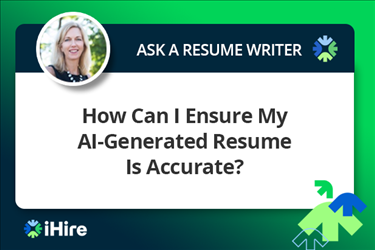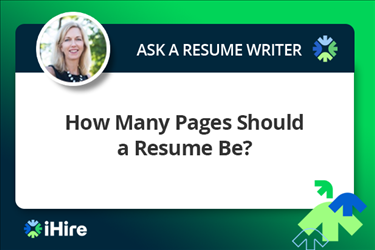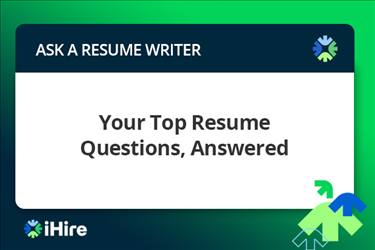- Job Seeker Resources
- |
- Last Updated: July 18, 2022

Visualizing Keywords in Any Job Ad
It can be difficult knowing which keywords to include in your resume. Unlike chemical formulas or parts of speech, there is no hard-and-fast rule for identifying these critical terms. So how do you know what they are?
Generally, keywords are the qualifications, duties, and skills an ideal candidate would hold and/or have demonstrated in the past. They should include your hard and soft skills, education, and relevant experience (both professional and unpaid).
Job Seeker Sign In
ATS Simulator
Once you’ve written your resume and optimized it for the keywords you picked out, find a website with software that functions like an applicant tracking system (ATS). These tools will scan your resume and let you know how it measures up to the job ad. Basically, you can test-drive your resume and see if it makes it past the bots.
iScore Resume Match is one such program that goes above and beyond the standard. It not only rates how well your resume keywords match the job posting’s, but also identifies terms that are missing from your resume. This allows you to add experiences you might have opted to leave out and tweak verbiage until your application is ATS optimized!
Word Cloud
Another method that people use is a word cloud, like EdWordle or TagCrowd. These websites allow you to copy and paste text into their tool, and they will present a graphic representation of how often certain terms appear. For example, the word cloud for this accounting associate job advertisement looked like this:
With this visualization, it’s easy to pick out the high-frequency vocabulary: government, accounting, maintain, accounts, receivable, payable, billing, clients, knowledge, etc.
Unfortunately, these websites only measure repetition; they can’t read an employer’s mind. This causes word lists from clouds like the one above to grow excessively long, including several obvious (accounting) or non-competency-based items (knowledge).You need to sift through the image and note the larger terms that are also skill or experience related. While useful, these sites should not be your only strategy.
Trigger Phrases
If you see one of these expressions, it may mean there’s a keyword involved.
- ________ experience or experience with ________
- Background
- Knowledge of ________
- Ability to ________
- Must ________
- Authorized/Certified/Licensed
- Names of industry-specific tools or software
- Action verbs (ex: supervise or build), particularly in the job duties/responsibilities section
Reevaluating that accounting associate job advertisement with these tricks of the trade reveals several keywords for responding resumes.
Check that you maintain the same wording when you’re integrating these key terms into your resume. And if you use an acronym, make sure that the first instance includes the entire phrase followed by the abbreviation— for example, “Registered Nurse (RN).” After that, however, you can just stick to the shortened form.
Because job ads are filled with handpicked qualifications and skills, they are a fantastic source for keywords tailored for a specific position. However, the information is often tightly packed, making it difficult to identify the most important terms. With the strategies and resources described above, keyword research becomes a much simpler task.
Sign In or Register to access all articles and insider tips for help in your job search.
Search for Banking Jobs
RELATED JOBS
ESSENTIAL JOB FUNCTIONS Responds to orders, general client inquiries, invoice questions and...
Security Operations Vice President -Threat HuntingJobID: 210641475 Category: Cybersecurity Operations JobSchedule: Full time Posted Date:...
Customer Relationship ManagerThe Customer Relationship Manager (Customer Success Manager) maintains tight control over...
Commercial Credit Risk ManagerSummary: The Segment Risk Manager is responsible for oversight and administration of credit risk...
Mortgage Loan ProcessorInsight Global is hiring for a Mortgage Loan Processor to join one of the largest homebuilding...
RELATED RESOURCES
Find the Right Job Faster
- Get personalized job matches sent to your inbox every day
- Connect directly with employers before your competition
- Advance your career with expert advice on interviewing, salary negotiation, and more
We value your privacy




